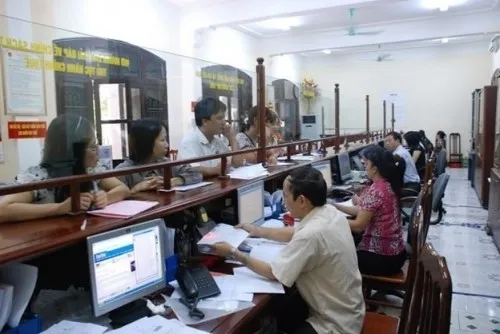
Dr. PHAN ĐỨC HIẾU, a Standing Member of the Economic Committee of the National Assembly emphasized these issues in a recent talk with Saigon Investment.
JOURNALIST: - Sir, the biggest problem for the economy today is the current business situation that is facing huge and endless difficulties, with several businesses lying stagnant and unable to operate. How do you rate this problematic situation?
Mr. PHAN ĐỨC HIẾU: - Vietnam's economy in 2023 is already in its halfway year and continues to face many uncertain ups and downs. The difficult situation today is very different from the difficult times in the past. Enterprises are now being affected by domestic and foreign disrupting factors, the negative aftermath of the Covid-19 pandemic, and various disturbances and fluctuations in the geopolitical situation across the globe. In particular, the competition to attract export orders between countries is now even more fierce. Some new global policies on the green economy have also created difficulties for businesses, such as the implementation of a CO2 tax on products.
The resilience of enterprises continues to be eroded because of continuous and unending difficulties. Besides, there is a situation of pushing, being afraid of taking responsibility, and not daring to take risky decisions. This situation will not only affect business activities but also the entrepreneurial spirit of enterprises. In this context, it is very important to accelerate institutional reforms and reduce compliance costs.
This will directly help businesses reduce their costs and thereby help them reduce many ongoing difficulties and have more opportunities to endure, restructure and recover when given the opportunity. Even more importantly, institutional reforms will help improve the ability of enterprises to absorb support policies and improve the effectiveness of such support policies and vice versa.
- Sir, accelerating institutional reforms has long been defined as necessary but why is it so important at this point and will there be any challenges to it?
- The law also has a negative side to it that brings undesirable effects, that is to say, that it creates compliance costs and administrative procedures. Theoretically, five types of costs can be generated from regulations, namely, compliance costs, fees, investment costs, opportunity costs, and informal costs. Among these costs, compliance costs are sometimes very large and create a disproportionate impact among enterprises of different sizes.
For instance, regulations on fire prevention and firefighting require separate firefighting vehicles and fire floats at each seaport. In addition to cutting compliance costs from already issued regulations, the current challenge is the fear of new regulations that will cost businesses more compliance costs. This is seen in the draft regulation on recycling for products, packaging, and administrative costs for the collection and treatment of waste by manufacturers and importers.
According to the draft, businesses that do not recycle by themselves will have to pay a certain amount to the Environment Protection Fund, which can be up to billions of dongs. Or the draft amendments to the Law on Special Consumption Tax, which is expected to both increase tax rates and expand the number of new taxable items. This can cause grave anxiety and increase huge costs for businesses.
- Sir, in your opinion, how can institutional reforms be promoted, and how to implement Official Dispatch 644 and Resolution 105 strictly and effectively?
- I am very happy that in recent days, the Prime Minister and the Government have issued drastic and strong measures on institutional reforms. Even better, the solutions to them are aimed at addressing the requirements and challenges of institutional reforms as I just mentioned.
That is the Official Letter 644 of the Prime Minister on rectification, strengthening responsibility, and improving the efficiency of administrative procedure reforms to promptly remove obstacles and difficulties for people and businesses, and Resolution 105 /NQ-CP on tasks and solutions to remove difficulties for production and businesses. This will continue to promote reform of administrative procedures and tighten discipline.
I highly appreciate these decisions because this is not only a solution but can also be a spiritual medicine for the business community. These decisions of the Prime Minister and Government have three strong points of institutional reform to reduce compliance costs.
First, the dispatch requires immediate removal of barriers to production and business activities according to required administrative procedures. In the state administrative system in the period of 2022 until 2025, around 20 percent of internal administrative procedures have been reduced and simplified, and at least 20 percent of compliance costs have also been reduced.
Second, the public notice emphasizes the reduction of legal compliance costs for newly issued regulations. At the official dispatch, the Prime Minister requested to resolutely only issue and maintain administrative procedures that are really necessary, with low compliance costs. Even Resolution 105 is stronger when required. The Prime Minister has requested to absolutely not issue regulations and administrative procedures related to new business activities that generate unnecessary costs, procedures, and valuable time for businesses and the people.
Third, thoroughly and carefully handle the opinions and recommendations of people and businesses on administrative mechanisms, policies, and procedures, to respond promptly to their requirements.
Dispatch 644 and Resolution 105 are important decisions in the current context, and more importantly, they must be strictly and effectively implemented. I request the Prime Minister to strengthen supervision and promote the implementation of Dispatch 644/CD-TTg and Resolution 105/NQ-CP. Relevant agencies need to seriously and diligently implement all the assigned tasks stated on them.
- Thank you very much.




















